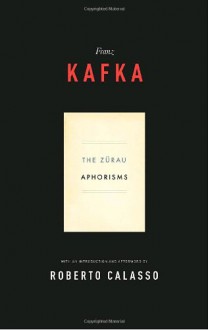The essential philosophical writings of one of the twentieth century’s most influential writers are now gathered into a single volume with an introduction and afterword by the celebrated writer and publisher Roberto Calasso. Illness set him free to write a series of philosophical fragments: some...
show more
The essential philosophical writings of one of the twentieth century’s most influential writers are now gathered into a single volume with an introduction and afterword by the celebrated writer and publisher Roberto Calasso. Illness set him free to write a series of philosophical fragments: some narratives, some single images, some parables. These “aphorisms” appeared, sometimes with a few words changed, in other writings–some of them as posthumous fragments published only after Kafka’s death in 1924. While working on K., his major book on Kafka, in the Bodleian Library, Roberto Calasso realized that the Zürau aphorisms, each written on a separate slip of very thin paper, numbered but unbound, represented something unique in Kafka’s opus–a work whose form he had created simultaneously with its content.The notebooks, freshly translated and laid out as Kafka had intended, are a distillation of Kafka at his most powerful and enigmatic. This lost jewel provides the reader with a fresh perspective on the collective work of a genius.
show less






 6 years ago
6 years ago